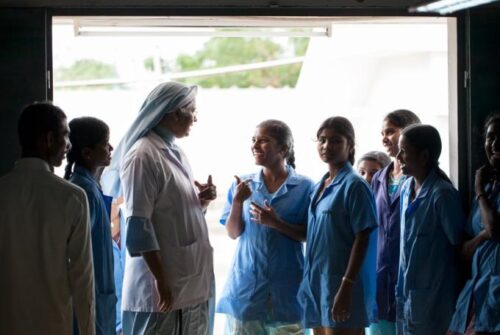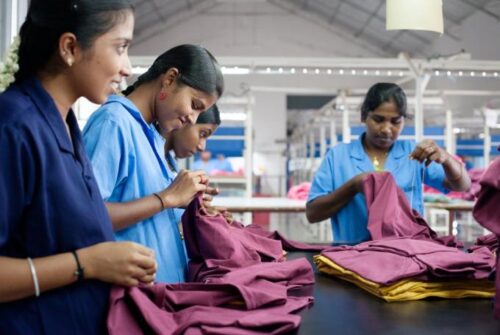India. A chain of solidarity from organic cotton.
Some Franciscan Sisters have succeeded in combining tradition and innovation. The ‘Assisi Garments’ project is not only a brand name but a way of life that respects people and the environment.
It was in 1994 that some Franciscan Sisters present in India, in the southern state of Tamil Nadu, decided to launch an activity to help young unemployed people with particular attention to those afflicted with various disabilities, especially the deaf and dumb.
The religious Sisters decided that the income should be used not only to grow the enterprise but also to sustain their other charitable welfare works. What better way is there to provide work in India than working with cotton? No sooner said than done: the sisters set up a business which today provides work for around 300 girls, up from 100 initially, and the name of the company leaves no doubt as to its origins: ‘Assisi Apparel’. Three years later it became ‘Assisi Garments’, specialising in handmade cotton clothes. Little by little, these high-quality garments produced in Tamil Nadu found an increasingly broad niche in the alternative business market.
The young women who work for ‘Assisi Garments’ come from the nearby state of Kerala where the Catholic component has its importance. They are provided with board and lodging by the Franciscan Sisters, apart from a good monthly wage and insurance coverage. They are also given in-service training courses to improve the products, not only making sure they do not involve the use of dangerous biological products but also to make the products more competitive on the international markets in the Americas and various European countries.
The profits from sales are used, as already noted, for various other works such as a clinic for cancer patients (due largely to the use of chemical fertilisers in agriculture), as well as a hospice, an orphanage, a centre for Aids sufferers, to aid lepers and provide education, including a school for the blind.
In the almost thirty years of its existence, ‘Assisi Garments’ has also succeeded in the added task of combining tradition, innovation and the protection of the environment, creating a system of one hundred per cent organic cotton products. Today it is something unique in the textile industry with an integrated chain from the cotton plant to the finished product. The cotton they use is, therefore, organic and so contributes in a responsible way to the protection of the environment, a considerable achievement, even in India. On the other hand, the Global Organic Textile Standard, the organisation that issues certificates, takes into account a whole series of parameters: the first is, of course, ecology but also the productive and social conditions throughout the chain.
These include the harvesting, spinning, cutting, and dying of the cotton and the control of materials and processes used in the transformation of cotton or other organic fibres. For example, ‘Assisi Garments’ does not use dyes containing heavy metals or formaldehyde so as not to cause allergies in foreign buyers.
‘Assisi Garments’ has become an outstanding exception in the textile industry. One small community of Franciscan Sisters has succeeded in challenging the great Indian textile industry. As the Sisters remind us, “Working with organic cotton involves respect for people and the environment“.
Mary Wilkes






